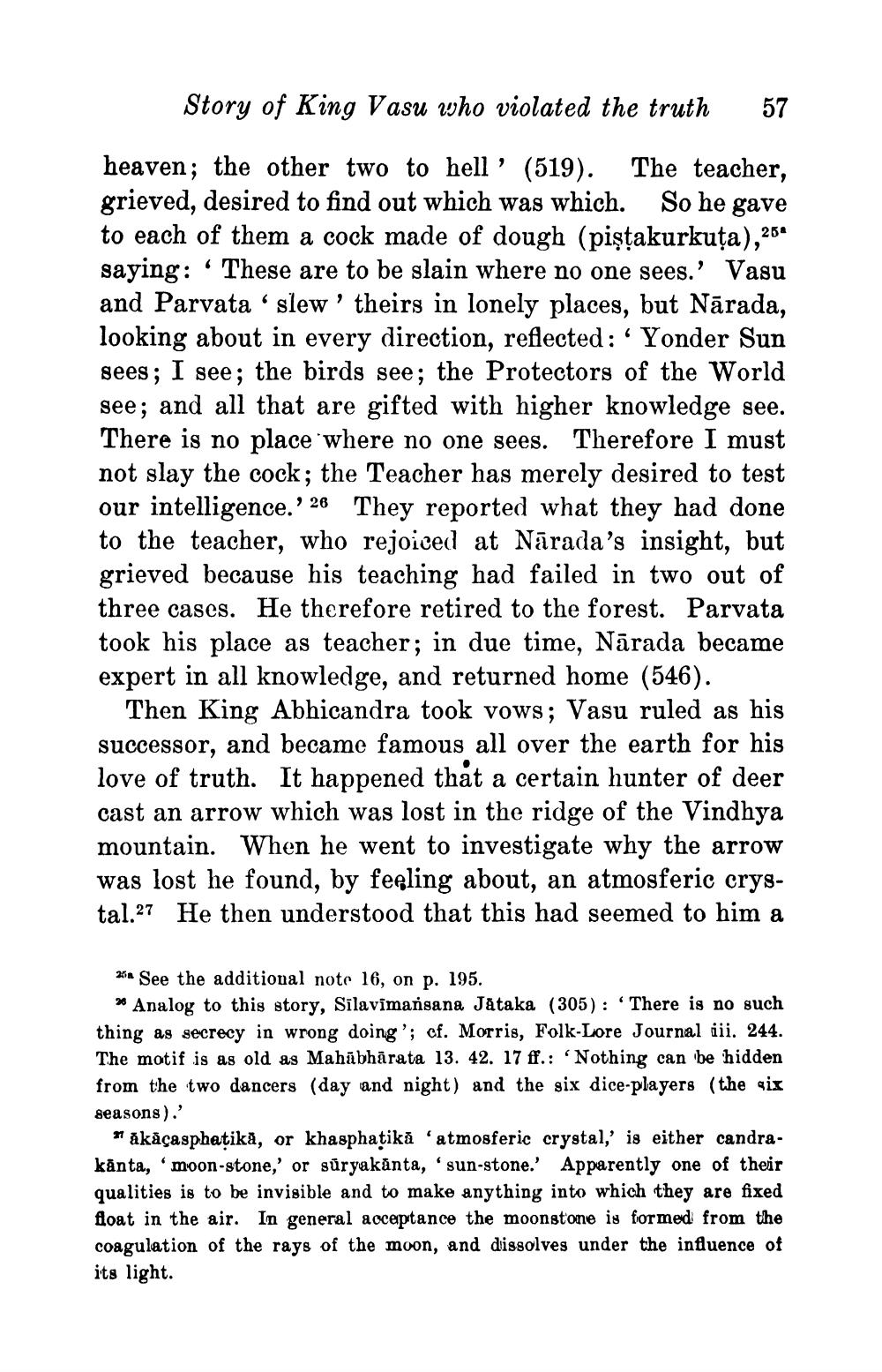________________
Story of King Vasu who violated the truth 57
The teacher, So he gave
25
"
heaven; the other two to hell' (519). grieved, desired to find out which was which. to each of them a cock made of dough (pişṭakurkuța),2 saying: These are to be slain where no one sees.' Vasu and Parvata slew' theirs in lonely places, but Nārada, looking about in every direction, reflected: ' Yonder Sun sees; I see; the birds see; the Protectors of the World see; and all that are gifted with higher knowledge see. There is no place where no one sees. Therefore I must not slay the cock; the Teacher has merely desired to test our intelligence.' They reported what they had done to the teacher, who rejoiced at Narada's insight, but grieved because his teaching had failed in two out of three cases. He therefore retired to the forest. Parvata took his place as teacher; in due time, Narada became expert in all knowledge, and returned home (546).
926
Then King Abhicandra took vows; Vasu ruled as his successor, and became famous all over the earth for his love of truth. It happened that a certain hunter of deer cast an arrow which was lost in the ridge of the Vindhya mountain. When he went to investigate why the arrow was lost he found, by feeling about, an atmosferic crystal.27 He then understood that this had seemed to him a
See the additional note 16, on p. 195.
Analog to this story, Silavimansana Jātaka (305): There is no such thing as secrecy in wrong doing'; cf. Morris, Folk-Lore Journal iii. 244. The motif is as old as Mahabharata 13. 42. 17 ff.: 'Nothing can be hidden from the two dancers (day and night) and the six dice-players (the six seasons).'
"ākāçasphaṭikä, or khasphatika atmosferic crystal,' is either candrakanta, moon-stone,' or suryakanta, 'sun-stone.' Apparently one of their qualities is to be invisible and to make anything into which they are fixed float in the air. In general acceptance the moonstone is formed from the coagulation of the rays of the moon, and dissolves under the influence of its light.




